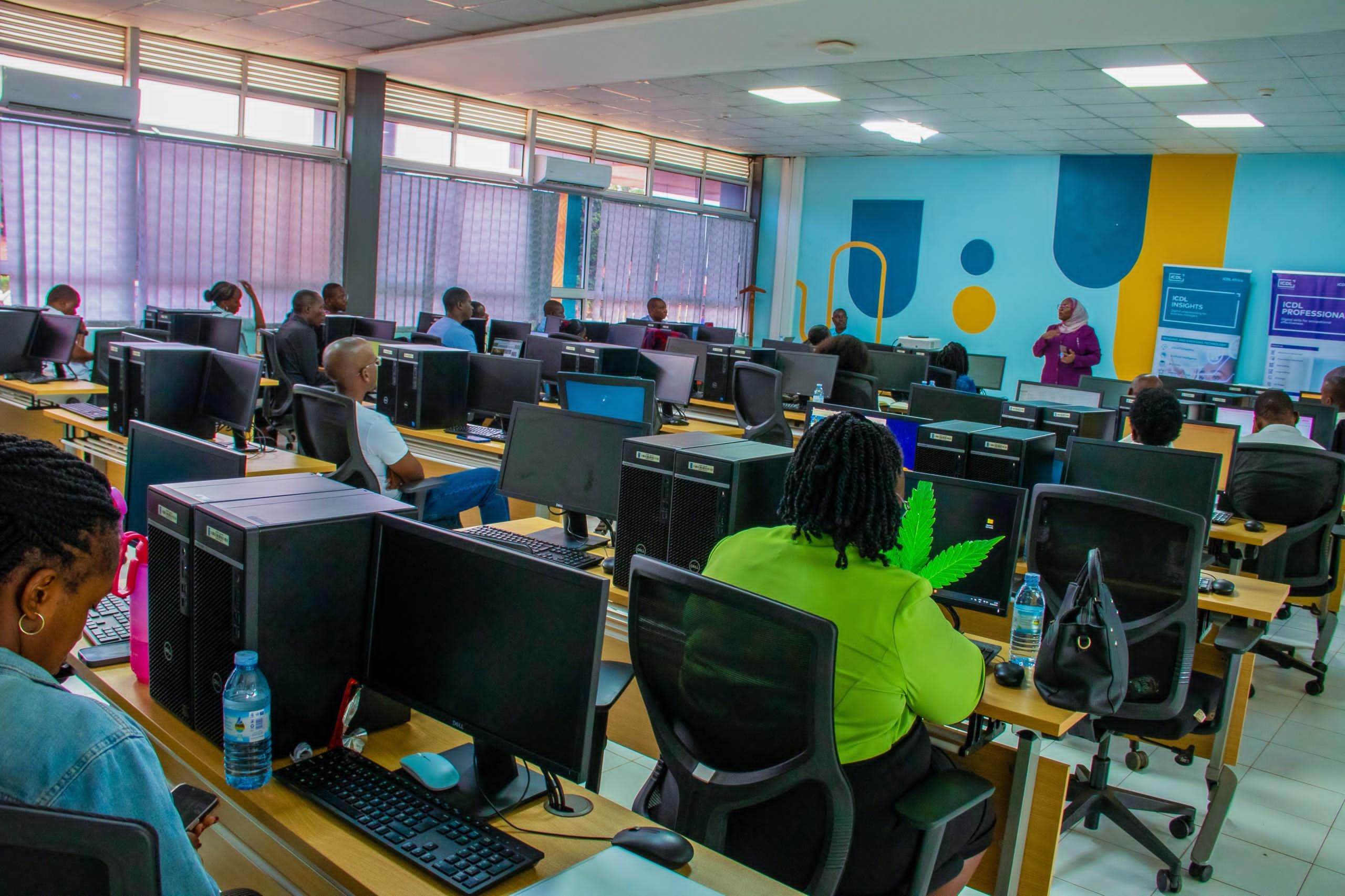Uganda’s long-awaited journey to First Oil has gained new momentum, with government officials expressing confidence that production will begin by mid-2026 following visible progress at the Kingfisher and Tilenga oil projects.
A high-level government delegation led by the Head of Public Service and Secretary to the Cabinet, Ms. Lucy Nakyobe, together with Dr. Aminah Zawedde, Permanent Secretary of the Ministry of ICT and National Guidance, Eng. Irene Bateebe, Permanent Secretary of the Ministry of Energy and Mineral Development and Ms Proscovia Nabbanja, Chief Executive Officer of Uganda National Oil Company (UNOC), spent two days inspecting key installations in the Albertine Graben. The team visited the Kingfisher Development Area, the Tilenga Project, Kabalega Industrial Park, and the Kasuruban Contract Area in Hoima and Buliisa.
At the Kingfisher site in Kikuube District, operated by CNOOC Uganda Limited, the delegation toured the Central Processing Facility (CPF), the heart of the project, as well as several well pads. Kingfisher is expected to produce about 40,000 barrels of oil per day, contributing significantly to Uganda’s combined peak production of 230,000 barrels per day once Tilenga, operated by TotalEnergies, reaches full capacity.
Speaking to journalists after the Kingfisher tour, Eng. Buteebe expressed her impression of the progress and the strong participation of Ugandans in the sector. “Three of the four well pads are complete, and the Central Processing Facility is steadily advancing. What stands out is that more than 70% of the technical staff here are Ugandans,” she said. “This reflects our deliberate effort to build local capacity and ensure that young people benefit directly from the sector.”
She added that the visit had offered first-hand proof that Uganda is ready for production. “From what we have seen, Uganda is firmly on course for First Oil by mid-next year. The groundwork has been laid, the infrastructure is taking shape, and the coordination among all partners is strong,” she said.
At Tilenga, which spans the northern and southern banks of the Albertine Graben, the delegation highlighted significant progress in the installation of the pipeline network that will transport oil and water between well pads and the Central Processing Facility. Engineers on-site explained that one pipe carries oil from the northern fields, while the second delivers water. Oil from the southern fields, which is waxier, travels through insulated pipelines lined with polyurethane to maintain a consistent temperature and ensure a smooth flow.
The pipelines are buried two meters underground for safety and are equipped with fibre optic cables that monitor temperature, pressure, and ground movement in real-time. Each pipeline undergoes a rigorous pressurised water test before commissioning to ensure integrity and eliminate leakage risks.
Eng. Irene Bateebe reaffirmed the government’s commitment to efficiency, safety, and sustainability. “Uganda’s oil journey is anchored on efficiency and responsibility. What we are seeing at Tilenga and Kingfisher shows that we are ready to produce oil while safeguarding the environment and ensuring that Ugandans benefit across the value chain,” she said.
She also noted that the sector has already attracted about US$7.5 billion in foreign direct investment, a clear indication of international confidence in Uganda’s growing energy potential. Supporting infrastructure, such as Kabalega International Airport and an extensive road network, is nearing completion to strengthen the oil value chain and drive local development.
Mr. Chen Zhuobiao, CEO of CNOOC Uganda Limited, applauded the partnership between the government and private sector, describing it as a model of collaboration. “At Kingfisher, we have made tremendous progress because of strong partnerships and adherence to international best practices,” he said. “Our focus is not only on production targets but also on protecting the environment, supporting local enterprises, and ensuring safety at every stage.”
Innovations such as Battery Energy Saving Systems and soundproofed machinery have been adopted to reduce emissions and noise pollution, particularly in ecologically sensitive areas. The pipeline systems are built to last at least 25 years, with an extendable lifespan of up to 40 years with proper maintenance. Ugandan contractors continue to play a central role in trenching, backfilling, and site restoration, reinforcing the country’s local content policy and creating jobs for nearby communities.
During the visit, the delegation also toured the Luweero Industries Limited drilling waste treatment facility, a subsidiary of the National Enterprise Corporation, where waste from CNOOC’s drilling operations is safely treated and disposed of.
To conclude the tour, Ms Nakyobe planted a tree at Luweero Industries as a symbol of the government’s commitment to environmental conservation. She also called on officials to amplify Uganda’s success story, crediting President Museveni’s leadership for steering the country toward this milestone.
Dr. Zawedde highlighted how developments in Hoima’s industrial park align with government priorities in ICT, manufacturing, and job creation. “The oil and gas industry presents immense opportunities for young Ugandans, especially those pursuing science and technology disciplines,” she said. “Let’s continue to tell Uganda’s story and position ourselves to benefit from these transformational projects.”
Ms. Nabbanja stated that the visit highlighted the significant investments and visible progress made across the sector, assuring Ugandans that production remains on schedule for the upcoming year.
As Uganda edges closer to Its First Oil, the Ministry of ICT and National Guidance continues to champion transparent communication about national projects, keeping citizens informed and engaged. The visit reaffirmed the government’s collective commitment to harnessing oil and gas for national transformation, with key infrastructure nearing completion and institutions like UNOC building capacity to operate independently.
Uganda’s march toward First Oil signals not just an economic milestone but a defining moment in the country’s journey toward industrialisation, job creation, and shared prosperity.

The author is a Communications Officer at the Ministry of ICT & National Guidance.
Related Stories
Communication
Sectoral Performance Review Workshop Convened to Advance Digital Transformation Agenda
Jun 22, 2025

